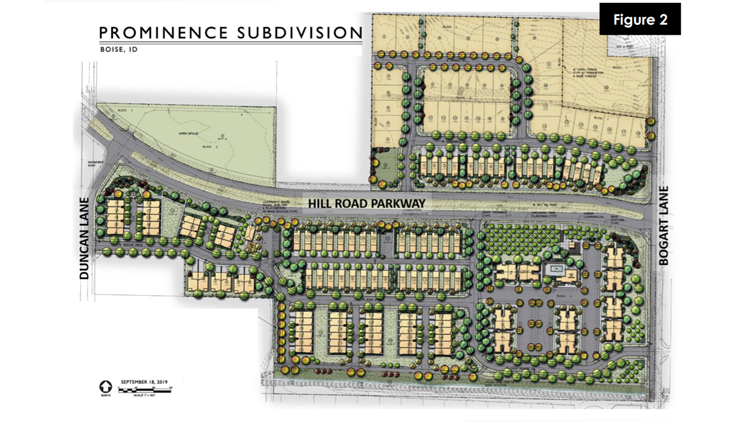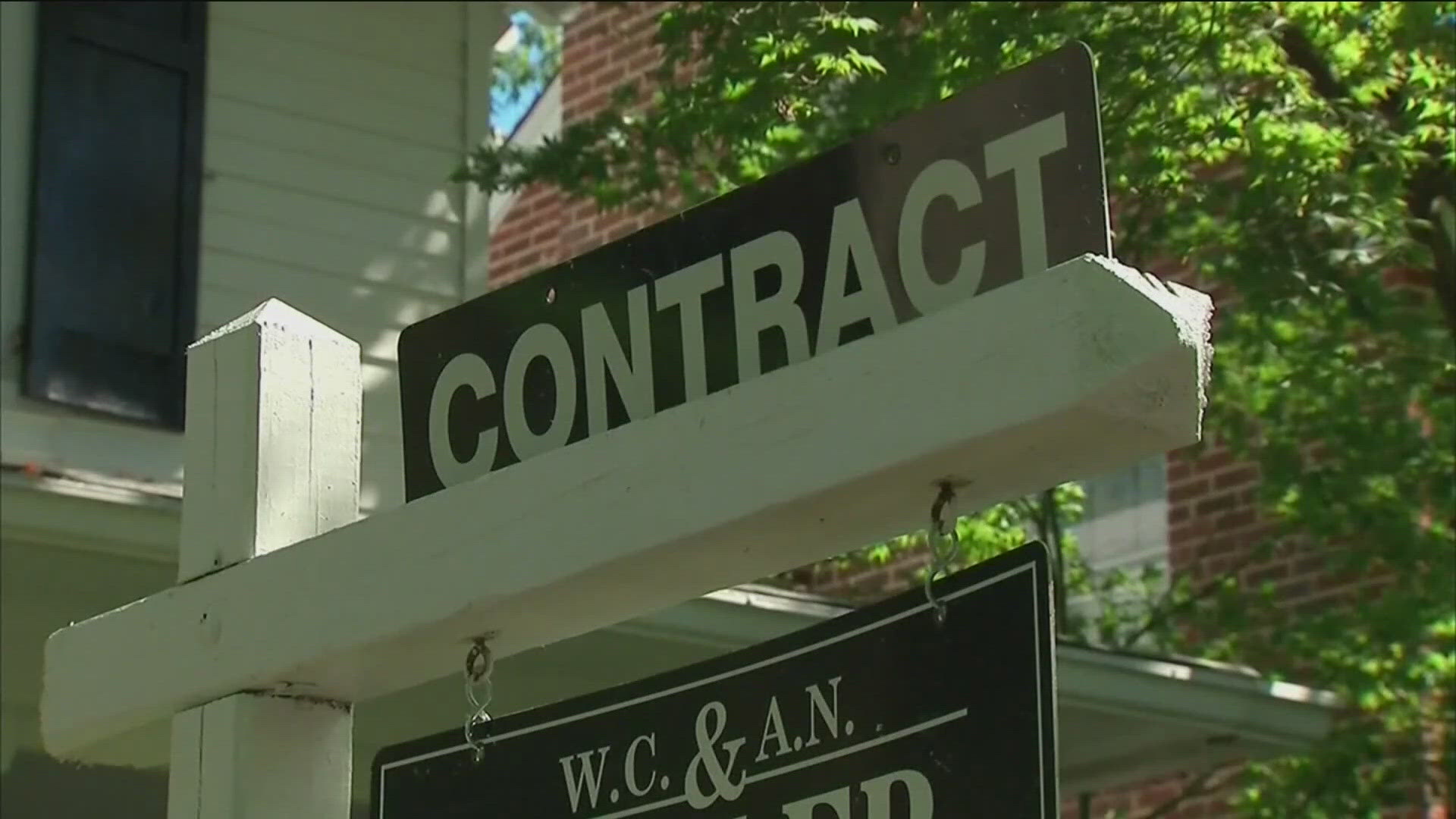BOISE, Idaho — A nearly two-year fight over the proposed Prominence subdivision in Northwest Boise is over.
On Tuesday, the Boise City Council once again heard several hours of testimony from neighbors and representatives from Trilogy Development, before unanimously approving the proposed 226-home neighborhood located on Hill Road Parkway near Duncan Lane, according to a report from the Idaho Press.
The project, which has a mix of single-family homes, townhouses and apartments, has been the subject of fierce neighborhood opposition on the city’s semi-rural edge since its introduction at the end of 2017.
Since it was first introduced with 307 units on 38 acres stretching across Hill Road Parkway, developers have pared down the density, lowered building heights and added more open space. These changes came after a 60-day mediation period between the North West Neighborhood Association and the developer, ordered by the city council in June.
Trilogy had pitched a new design this spring with 288 units, and cut that down to 226 after more meetings with neighbors. The developer also split the three-story apartment building into multiple, smaller buildings, and added more pathways.
Jane Suggs, a planner representing the developer, said despite neighbors’ concerns, this project will help provide housing for residents flooding into the rapidly growing region.
“The people who will win are the people who live in these homes,” she said, over a disapproving murmur from the crowd. “We are providing homes for people who need homes.”
Even after the changes from the developer, city council members put even more restrictions on the project. They asked the developer to cap apartment buildings at two stories to preserve views along Hill Road Parkway; told the developer to landscape the development with fruit trees and herbs; and required that an irrigation ditch alongside the development remain open.
Another change from council will require that the city have begun construction on a fire station in the area before it grants the conditional use permit for the apartment phase of the project. A sidewalk extension on Bogart Lane to Old Hill Road was also required.
City officials tried accommodate the neighborhood. After hearing lengthy testimony throughout the summer about fire response concerns, city staff formalized an automatic aid agreement with the city of Eagle to ensure the area is well covered. Once signed, this will put in writing a long-standing agreement between the two fire departments.
Boise Parks and Recreation also filed a letter of intent to purchase a nearly 3-acre parcel on the north side of Hill Road Parkway that was set to have 15 townhomes as part of the project so it can become preserved open space in the area.
Neighbors were still calling for the project to “go back to the drawing board” and the parcel be developed with roughly only two units per acre under its existing agricultural zoning, but they conceded that the project was more amenable than it had ever been before.
“We appreciate the changes and feel the movement is in the right direction, but we feel like there’s still no great use of the land,” North West Neighborhood Association President Richard Llewellyn told council. “It’s better, but it’s not nearly the potential it could be.”
The neighborhood was hoping for lower density, but also specifically requested no tall, opaque vinyl fences be built in the area. They also strongly lobbied for walking paths around the exterior of the project, to better connect the development to the area.
Overall, city council members and Mayor Dave Bieter were very supportive of the changes and applauded the neighbors for getting involved with suggesting changes to the project before it was approved.
“There was some real effort and some good faith by the developer, and I think that’s important to a whole lot of things on this,” Bieter said. “That was clear, that there was real effort expended, and that was appreciated.”
(Editor’s note: Jane Suggs is a member of the Idaho Press editorial board.)
More from our partner Idaho Press: Rediscovered Books to seek bilingual employees



